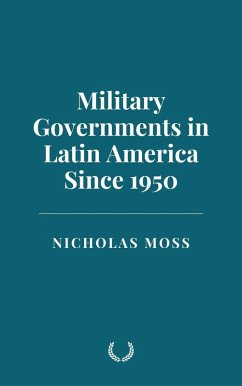The book begins by delving into the historical roots of military rule in the region, analyzing the factors that led to the rise of authoritarian regimes, and the varying degrees of resistance faced by revolutionary movements. It explores the consequences of U.S. Cold War intervention in these countries, supporting anti-communist military governments at the expense of democracy, human rights, and social justice. Revolutionary movements, such as the Sandinista revolution in Nicaragua and the Cuban-inspired leftist insurgencies, offer a contrast to the repressive regimes, as they sought to address inequality, land reform, and social transformation, often in the face of foreign opposition.
In examining the consequences of military rule, the book highlights the long-term effects of repression, human rights abuses, and the internal conflicts that ensued. Yet, it also explores moments of democratic transition, reconciliation, and the long struggle for peace, as nations such as Chile and El Salvador sought paths to healing after decades of violence and division. Throughout, the narrative demonstrates the resilience of civil society and the enduring fight for justice, even in the most difficult of circumstances.
Through the lens of historical analysis, primary sources, and the perspectives of influential authors and scholars, this book provides a nuanced understanding of Latin America's 20th-century struggles for power, justice, and identity. The work not only recounts the historical events but also reflects on their lasting legacy, offering important lessons for the future of democracy, governance, and human rights in the region.
Dieser Download kann aus rechtlichen Gründen nur mit Rechnungsadresse in A, B, CY, CZ, D, DK, EW, E, FIN, F, GR, H, IRL, I, LT, L, LR, M, NL, PL, P, R, S, SLO, SK ausgeliefert werden.









